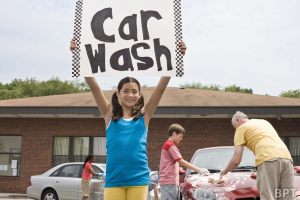 (BPT) – When kids go back to school, fundraising by parent-teacher organizations and booster clubs kicks into high gear. Hard-working parent volunteers host bake sales, festivals and myriad other events to raise funds for schools. But what if the worst happens and someone gets hurt? You may think the school will be liable to pay damages or medical expenses for injured parties, but in most cases volunteers themselves are on the hook.
(BPT) – When kids go back to school, fundraising by parent-teacher organizations and booster clubs kicks into high gear. Hard-working parent volunteers host bake sales, festivals and myriad other events to raise funds for schools. But what if the worst happens and someone gets hurt? You may think the school will be liable to pay damages or medical expenses for injured parties, but in most cases volunteers themselves are on the hook.
“PTAs, PTOs, booster clubs, fundraising committees and other community organizations are, 98 percent of the time, not covered by a school district’s insurance policies,” says Rob Nuccio, president and chief executive officer of RV Nuccio & Associates. Nuccio has nearly 40 years experience in the insurance industry. “When a lawsuit occurs as a result of something that happens at an event, the private citizens running the event and organization can find their personal assets at risk – home, vehicles, personal savings and even future wages.”
In trying to support their school financially, parents may find their own finances jeopardized. When a situation occurs, organizers may not only be at risk from legal action by injured parties, the school district itself may also draw the organization into legal problems, Nuccio notes. And while this type of lawsuit is not necessarily frequent, when they do occur the financial impact can be devastating, with awards tallying millions of dollars.
“That’s not to say you shouldn’t volunteer to support your school,” Nuccio says. “It’s just imperative that you take steps to protect yourself and everyone in your organization. And while anyone can sue for any reason at any time in the U.S., regardless of state volunteer protection laws, protecting yourself can go a long way toward reducing your risks.”
Nuccio offers some advice for school volunteer groups to ensure they stay safer this school year:
* Get insured. “Your school district’s insurance almost certainly doesn’t cover your organization,” he notes. “Insurance is easy to get, affordable and absolutely necessary. In most cases, less than $200 a year will buy you $1 million in coverage for issues ranging from bodily injury to product liability.” Types of events/situations that require insurance include carnival rides or games, -holiday fairs or events, babysitting, food sales, door-to-door fundraising sales and more. Log on to www.rvnuccio.com to learn more and find out about pricing.
* When using an outside vendor for attractions like pony rides or bounce houses, make sure the vendor is properly insured, and require them to provide trained staff to operate the attraction. Never let a volunteer manage the attraction.
* Keep events on school property. Never host something at a volunteer’s home or place of business.
* For product sales, avoid door-to-door selling, and encourage parents to never leave kids unsupervised when selling products.
* During car washes, never let anyone other than the owner of the vehicle drive it. Keep car washes small, manageable and tightly controlled.
* At a craft fair, don’t sell items that are small enough to pass through a child choke testing tube. You can find these available for purchase online.
* Avoid dunk tanks. Instead, substitute another form of watery fun. Invite participants to throw wet sponges at the principal or favorite teacher. Be sure the principal wears safety goggles to shield eyes from possible debris in the sponge.
* Keep events small. Avoid events that will draw 1,000 or more people. The larger the event, the more difficult it will be to manage risk.
“Finally, although it should go without saying, never host any school-related activity that involves firearms, fireworks, bonfires, alcohol or pyrotechnics,” Nuccio says. “The risks associated with those things will far outweigh the fund-raising benefits.”
Proactive steps can help ensure your school fundraiser is safe for everyone, including the volunteers who work so hard to make it a success.






